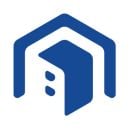Speaking up on a Zoom call in front of the entire company is nerve-wracking — especially if you’re a new hire.
“It’s different than talking in person because everyone’s eyes are on you,” said Ashley Connell, the office manager for Buildout. “That’s why it really warms my heart whenever an intern or a new hire answers a question at a town hall. I feel so happy that they are comfortable enough to speak up.”
It’s perhaps this desire to hear everyone’s voice that has fostered such a close company culture at the Chicago-based real estate marketing software company. And that closeness, Connell said, manifests itself in distinctively lighthearted ways, like casting silly videos on the office TVs or playing goofy games on Friday afternoons.
When you build a foundation of trust between each other, it allows people to be vulnerable, especially during a time that’s so uncertain and scary.”
At the heart of it, keeping things light is no laughing matter, said Sonni Conway, a creative director. It takes work to build an environment where people are comfortable enough to be themselves. While that creates a fun culture, it also allows for a more effective support system when things get tough.
“When you build a foundation of trust between each other, it allows people to be vulnerable, especially during a time that’s so uncertain and scary,” Conway said.
“We want people to use their voice, even if it’s answering a question when they’re not sure if they have the right answer,” added Shamekia Butler, a data analyst. “We want people to bring their opinions, their input and their uniqueness in whatever they’re saying.”
How can companies foster that environment in a remote workforce? Built In Chicago talked with Butler, Conway and Connell to learn more about the processes and priorities Buildout has in place to keep its culture of caring — and fun — intact during the pandemic.

Let’s back up. What was Buildout’s culture like before you went remote?
Creative Director of Marketing Sonni Conway: I’ve been with the company for about five years — when I started, there were only seven of us. Fridays were a huge highlight where at the end of the day we were able to have fun and play elaborate games while building great relationships with our teammates. That has been something we’ve tried very hard to keep as our company has grown. We haven’t taken ourselves too seriously, and I think that comfort and safety has helped people to bring their whole selves to work.
Data Analyst Shamekia Butler: If you love unique board games and you want to start a board game club, you can. If you really love music, art or reading or have a niche interest — we don’t want you to leave that at the door before you come into the office.
I’ve never worked at a company before where I talk to the CEO, CCO and CTO in the kitchen all the time. We have coffee, we laugh, we talk about our kids. At other organizations, I’d never felt truly connected to C-level people. But here, I am connected to them because they also bring their authentic selves to work.
People are just willing to be silly with each other, which is really helpful when things get stressful.”
Office Manager Ashley Connell: When we were in the office, there was always weird stuff happening during the day that people would pile onto and enjoy. We had a ribbon-cutting ceremony for one of our conference rooms — I brought in these giant scissors, we played “Pomp and Circumstance” and someone gave a speech. People are just willing to be silly with each other, which is really helpful when things get stressful.

How do you all bring your whole selves to work when you can’t actually go to work?
Conway: My team has been through this transition before, when I moved from Chicago to Cleveland to work remotely. Whenever I would join a meeting, I would almost get to business too quickly. I realized I didn’t have a lot of time to catch up with the team.
So now in our daily standups, we set aside time to socialize and just catch up. Each team member runs the meeting for a week at a time and brings fun topics for the group to discuss together. Now that the whole team’s remote, I can tell that it resonates with them — those daily standups are cherished.
Connell: There’s been a lot of intentional conversation in trying to find a way to reconstruct our culture and to make sure that people feel connected because that’s such a big part of working at Buildout. We’ve tried a lot of things, some have not stuck and some have.
We have a significant proportion of employees who are improvisers and comedians, so I worked with them to put together a Zoom talent show. Our CEO even played the piano and sang a song at the end. We also have weekly trivia nights, which has been a runaway success. Each week, a different member of the team hosts and we get to learn a little more about them based on the questions they put together.
You can have clubs, events and happy hours, but none of that is really going to resonate unless you truly care about your people.”
Butler: I’ve never felt like I am going to work. I feel like I’m coming to Buildout, where I get to do something really cool with people that I genuinely care about.
I’d say it’s less about throwing things at your people — you can have clubs, events and happy hours, but none of that is really going to resonate unless you truly care about your people. If they’re not bringing their whole selves to activities that you’ve created and built into your remote culture, it isn’t going to have the same impact.

What resources has Buildout provided to help employees during the pandemic?
Butler: I’m being intentional with reaching out to my team, especially if someone’s been quiet lately. We start our weekly team meetings with everyone turning their camera on and checking in with each other so we can really keep a pulse on where everyone is. If people are having a stressful week, we encourage them to tell us so that we can help offload some of that stress.
Conway: There has been way more communication about how the company is doing right now and what our opportunities are during this time. Buildout has really dedicated itself to that transparent communication. They’ve also created a whole database of helpful resources for employees that are remote, like mental health resources or activities you can do while isolated. There’s been a wealth of knowledge for us to use.
SHOWING GRATITUDE WITH … A FLAMINGO?

It can be hard to get new hires fully immersed in a company’s culture while remote. How is Buildout handling that?
Connell: In the office, we’d typically have a catered breakfast every time we onboard someone. Everyone’s so friendly, and they’d try to connect with you throughout the day and you have all these lovely casual conversations.
While remote, we’ve onboarded six people. I was really invested in finding ways to replicate our old setup — we scheduled people to have lunch together over Zoom and created a welcome video where a bunch of different employees sent in clips. We wanted to continue that natural sense of connection.
Being a full-time remote team member, I was convinced we could make new hires feel welcome and ensure they have all the tools they need to succeed.”
Conway: Being a full-time remote team member, I was convinced we could make new hires feel welcome and ensure they have all the tools they need to succeed. In order to onboard our marketing project manager who joined while we were already remote, we met for two-hour chunks twice a day. It honestly felt no different than being in person.
I’ve still never met her in person, but I feel very connected to her. Because we’re so dedicated to our culture, she has been able to build personal relationships with everyone on the team, even though we’re remote.
What new traditions will Buildout continue once you’re all back in the office?
Connell: I’ve had the opportunity to figure out a new way to embrace my role since we went remote. My responsibilities have changed almost 100 percent. All of the things that I would have done in the office are now formalized in a way that means I can really commit time and energy to plan them.
We’ve learned a lot about the remote experience, which I think will benefit Buildout’s remote and on-site employees in the future. Our culture is to be very intentional about connection and making sure that everyone is having the best experience they can. I hope that we’re able to bring that back to the office and to our remote workers in a more formal way.
And we’ll keep playing trivia.
Butler: Trivia has to stay.














